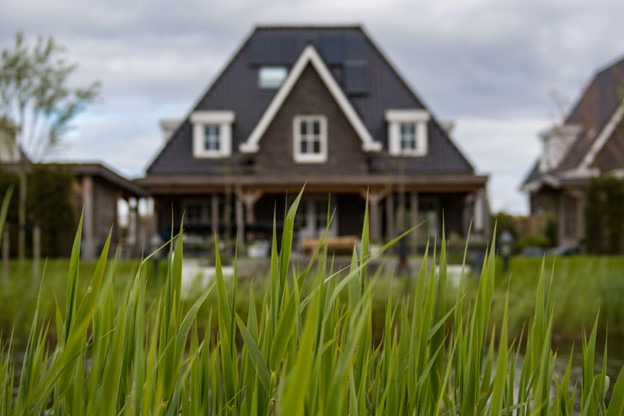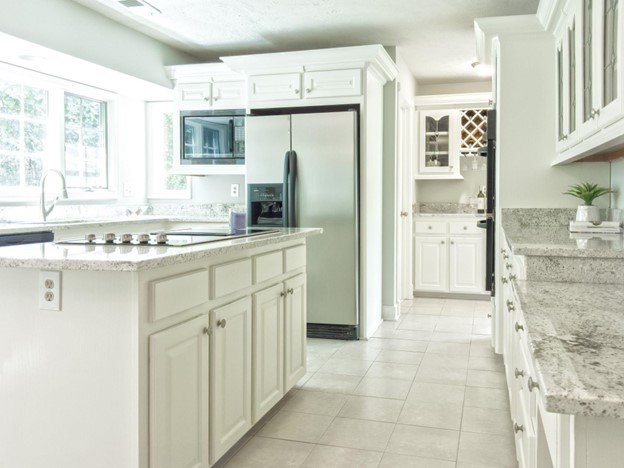There is an abundance of different phrases to understand in real estate. A single-family home is probably the type of residential property most associated with our mainstream idea of what a “home” looks like: four walls, a roof, and a yard of your own. It seems self-explanatory, but what is a single-family home exactly, and how is it different from other types of homes?
What is a single-family home?
Depending on who you ask, you’ll get slightly different answers on what a single-family home is. Some use this term to refer only to single-family detached homes, where the structure doesn’t share any walls with any other residences. However, the legal description for this home is “a structure maintained and used as a single dwelling unit.” So what does that mean, exactly? A single dwelling unit will have these characteristics:
- No common walls: This home is a stand-alone, detached property. This means that the home doesn’t share common walls or a roof with any other dwelling.
- Land: A single-family home has no shared property but is built on its own parcel of land.
- Entrance and exit: A single-family home has its own private and direct access to a street or thoroughfare. This is as opposed to an apartment, which has hallways and a lobby that lead to street access.
- Utilities: Only one set of utilities can service this home—and may not be shared in any way with another residence. This applies to heating, electricity, water, or any other essential service.
- One owner: This home is built as the residence for one family, person, or household, whose owner has an undivided interest in the unit.
- Single kitchen: This kind of home has one kitchen. Adding a kitchen to an in-law suite or carriage house will alter a home’s zoning classification.

The pros and cons of single-family homes
If you’re considering a single-family home, there are some significant advantages and disadvantages. However, the pros and cons can vary depending on the location and the type of property you’re considering. So, consider how this list lines up with your unique situation.
Pros of single-family homes
- More space. Though single-family homes can take on all sorts of shapes, sizes, and square footage, they tend to be a good choice for those who need more space – whether that means a larger kitchen, more bedrooms, or a basement for storage.
- More privacy. Because you and your neighbors aren’t all squished together into adjacent units with shared walls, you don’t have to worry about anyone overhearing private phone conversations or judging your taste in music.
- Fewer neighborly nuisances. Along with more privacy, single-family homeowners don’t have to worry as much about noisy neighbors.
- Freedom to build or modify. While other types of homeowners typically have less say over home improvements or modifications, single-family homeowners have more freedom to decide what their home looks like, inside and out – which can be a great opportunity for those looking to buy a fixer-upper home.
Cons of single-family homes
- Higher purchase price. For the most part, single-family homes will come with bigger price tags than other dwelling types in comparable areas. This can make them cost-prohibitive for first-time home buyers, who might not have as much buying power.
- Higher down payment and closing costs. With a higher purchase price comes the need for a larger amount of cash at the closing table. If you don’t have enough saved up for a down payment and closing costs, you likely won’t be able to get a mortgage to purchase the property.
- More financial responsibility. Single-family homes are more expensive upfront, but they’ll also tend to cost more throughout the years. For example, when your single-family home needs a repair, 100% of that cost comes out of your pocket.
- Sole responsibility for maintenance. You’ll also hold the responsibility of actually doing the work of making sure the property doesn’t fall into disrepair. This means mowing the lawn (or hiring someone), cleaning the gutters, shoveling snow, and regularly replacing air filters.
Alternatives to single-family homes
If you’re not sure if a single-family home is for you, it might be helpful to consider some other types of homes that might be a better fit.
- Multifamily homes. A multifamily home is a residential structure that is made up of multiple individual housing units. These units may be built on top of each other or side by side. These types of structures are good for buyers looking for an investment property, as they can either live in one of the units and rent out the others or live somewhere else and rent out all the units in the building.
- Condominiums. Condos can look similar to multifamily homes, with many individual units making up a larger structure. The difference is that a different person owns each unit. Condos are often a good choice for those looking for less maintenance.
- Townhouse. Townhouses are sort of like a hybrid between condos and single-family homes. Townhouse owners own the interior and exterior of their home and the land it sits on, like with a single-family home. However, these homes often operate more like condos when it comes to their governing associations, and you’ll typically see them in communities with shared amenities such as pools or tennis courts.
- Modular homes. These homes are prefabricated, built in a factory, and then transported in “modules” to be assembled onsite. These homes can be more affordable than more traditional home types and are very customizable if you’re building them new rather than buying one.
- Apartments. In most cases, when you live in an apartment, you rent it rather than own it. However, if you own your apartment unit, it’s technically considered condo ownership, where you own the interior of your housing unit.
It is no wonder why single-family homes are among the most popular real estate options among buyers. However, it is crucial to consider the added responsibilities and costs of buying a single-family home.
Save time by working with the professionals at Trustworthy Title & Escrow. We provide quick services to help real estate agents reach deadlines. Contact us today, we are happy to help!

